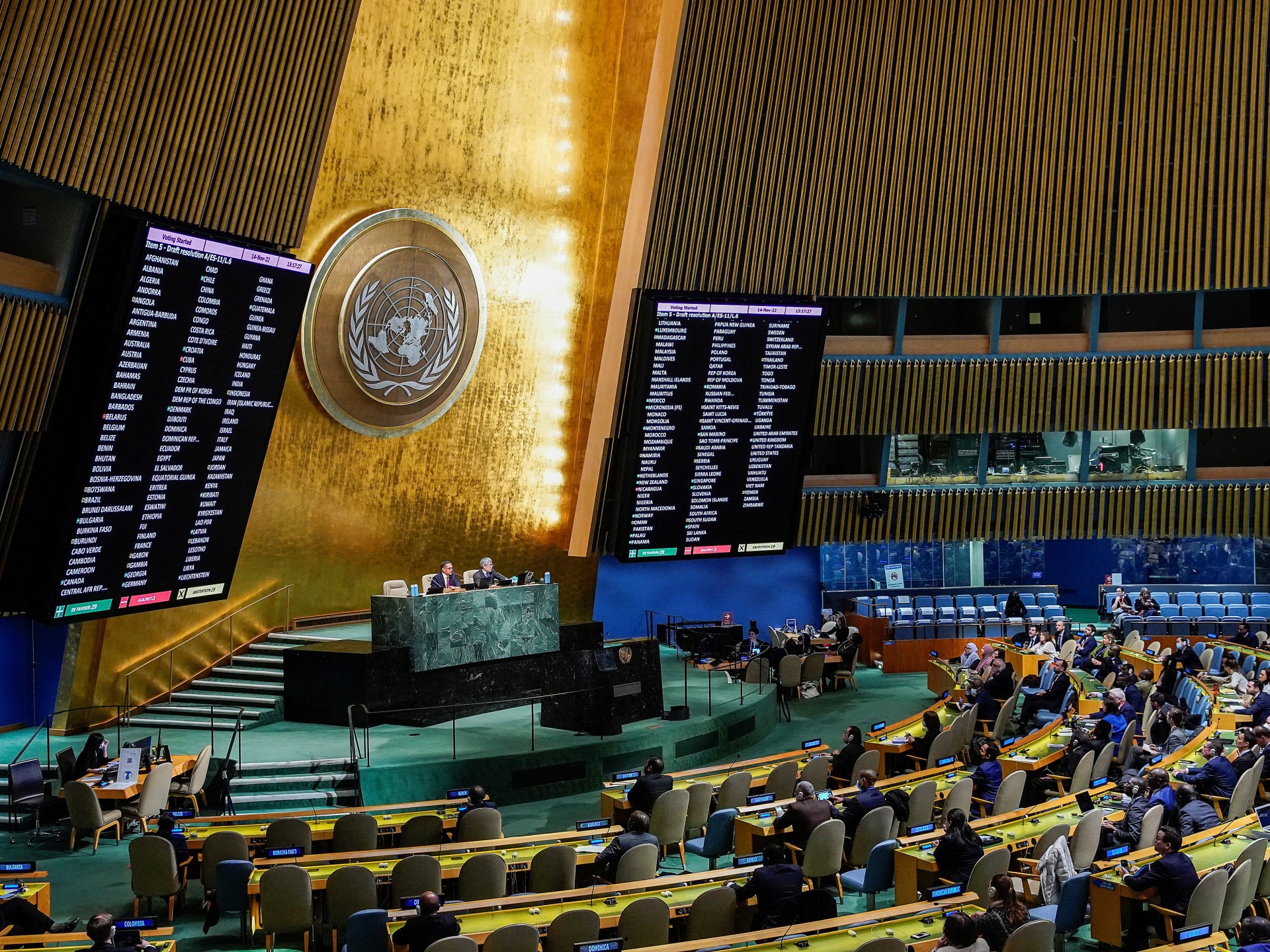The United Nations General Assembly adopted a resolution to hold a high-level session to commemorate the 75th anniversary of the Nakba in the General Assembly Hall on May 15 next year.
The resolution received 90 votes in favor, while 30 countries voted against it, including the United Kingdom, Germany, Canada and Sweden, in addition to the United States and Israel, while 47 countries abstained from voting.
It is noteworthy that the Palestinian Mission to the United Nations and the Committee on the Exercise of the Inalienable Rights of the Palestinian People have previously organized events to commemorate the Nakba in the General Assembly Hall, but this is the first time that the event will be held based on a mandate from the General Assembly itself.
The Palestinian delegate to the United Nations, Riyad Mansour, called on the international community to support Palestine's full membership in the international organization to save the two-state solution.
He said - during a regular session of the General Assembly on the Palestinian issue - that the international community must take decisive action now and recognize the Palestinian state on the 1967 borders, with East Jerusalem as its capital, without further delay.
The Nakba is a term that symbolizes the mass forced displacement in 1948 of more than 750,000 Palestinians from their homes and lands, as the Zionist movement succeeded - with the support of Britain - in controlling the largest part of Palestine by force of arms and declaring the establishment of Israel.
The memory summarizes the stages of displacement that uprooted the Palestinians from 20 cities and about 400 villages, whose properties and farms became part of the occupying state.
It is noteworthy that the day before yesterday, Tuesday - November 29 - marked the 75th anniversary of the issuance of United Nations Resolution 181 (which was issued in 1947) to divide Palestine into two Jewish and Arab states, and placed the city of Jerusalem under international trusteeship.
The partition decision detailed the lands and borders of the two states, giving the Jews - whose percentage was about 33% - the largest area by about 56%, compared to about 44% for the Palestinians, who made up 67% of the population.
According to the Palestinian Central Bureau of Statistics, the Jews today constitute 50.3% of the total population, and they exploit more than 85% of the total area of historical Palestine, which is 27 thousand square kilometers.

